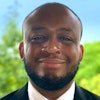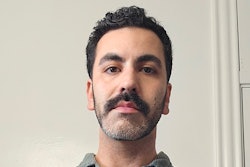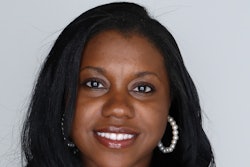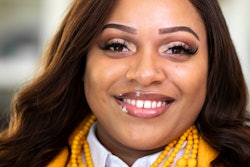
“He wants to research methods to improve the evaluation of a student-athlete experiencing concussion,” says Karr. “He’s interested in a specialty area in our field called sports neuropsychology.”
His doctoral program at UK is in clinical psychology with a neuropsychology concentration. The topic of Ingram’s master’s thesis was “The Sport Concussion Assessment Tool: A Multidimensional Symptom Model for Detecting Elevated Post-Concussion Symptoms.” He will complete his doctoral coursework next year and envisions his doctoral dissertation focusing on network modeling with concussion symptoms and concussion assessment data in collegiate athletes. Ingram uses data from the CARE (Concussion Assessment, Research and Education) Consortium for a lot of his research, which has data from the NCAA and Department of Defense.
“Athletics are a really important entry way and connection to higher education, especially for people from minoritized backgrounds,” says Ingram. “When you look at a lot of the brain injury research, student-athletes have a lot of unique considerations for their care when they’re recovering from concussions. There is the actual brain injury itself, but then you talk about being removed from the classroom, but also removed from your sport, teammates, and things that are probably closely tied to your identity.
“There can be broad, sweeping consequences for young adults that are in the stage of setting themselves up for the rest of their lives.”
Ingram’s goal after completing his doctorate is to be a clinician/scientist and have a position in an academic medical center, where he will see patients and conduct research. A sports neuropsychologist is part of an athlete’s care team, evaluating what may be in an individual’s way in terms of returning to sport and regular life activities. That also includes research, which can, in turn, prove beneficial in a clinical setting.
“I love the utility of research and having that research to clinical work pipeline where everything you do to help people is informed by the data and the science,” says Ingram. “I want to be involved in research in a way where I’m not initiating it as much. I want to really connect with people and help push the research forward, even if it’s not necessarily my research.
“I’m learning a lot of skills that will help me be easily pluggable — meaning, ‘Here’s the research project. Here are the roles we need you to do. Go and run with it,’” he adds. “I have the background and the technical skills to do that, regardless of what the project is. I do love already knowing that I want to do something healthcare/medical. I want to have that be a priority as much as possible.”
The recipient of prestigious awards, Ingram is the Lyman T. Johnson Predoctoral Fellow, named for the man who led to the desegregation of UK, and a UNITE Predoctoral Fellow, which is related to a research priority area based on equity. Ingram says he has been most fortunate, as the funds from these and other grants enable him to focus on his research and writing.
“Having the time to write helped me get all those publications early,” Ingram says. “It changed the entire grad school experience.”
Among the articles Ingram has had published in collaboration with Karr is “The Post-Concussion Symptom Scale: Normative Data for Adolescent Student-Athletes Stratified by Gender and Preexisting Conditions” in The American Journal of Sports Medicine. He has also worked with Karr on research related to traumatic brain injury, including repetitive head injuries in survivors of intimate partner violence.
“The sport concussion research is typically my independent area,” says Ingram. “At some of these conferences, it’s been really cool sharing the research. I’ve been able to go to some sport-concussion-specific conferences.”


















